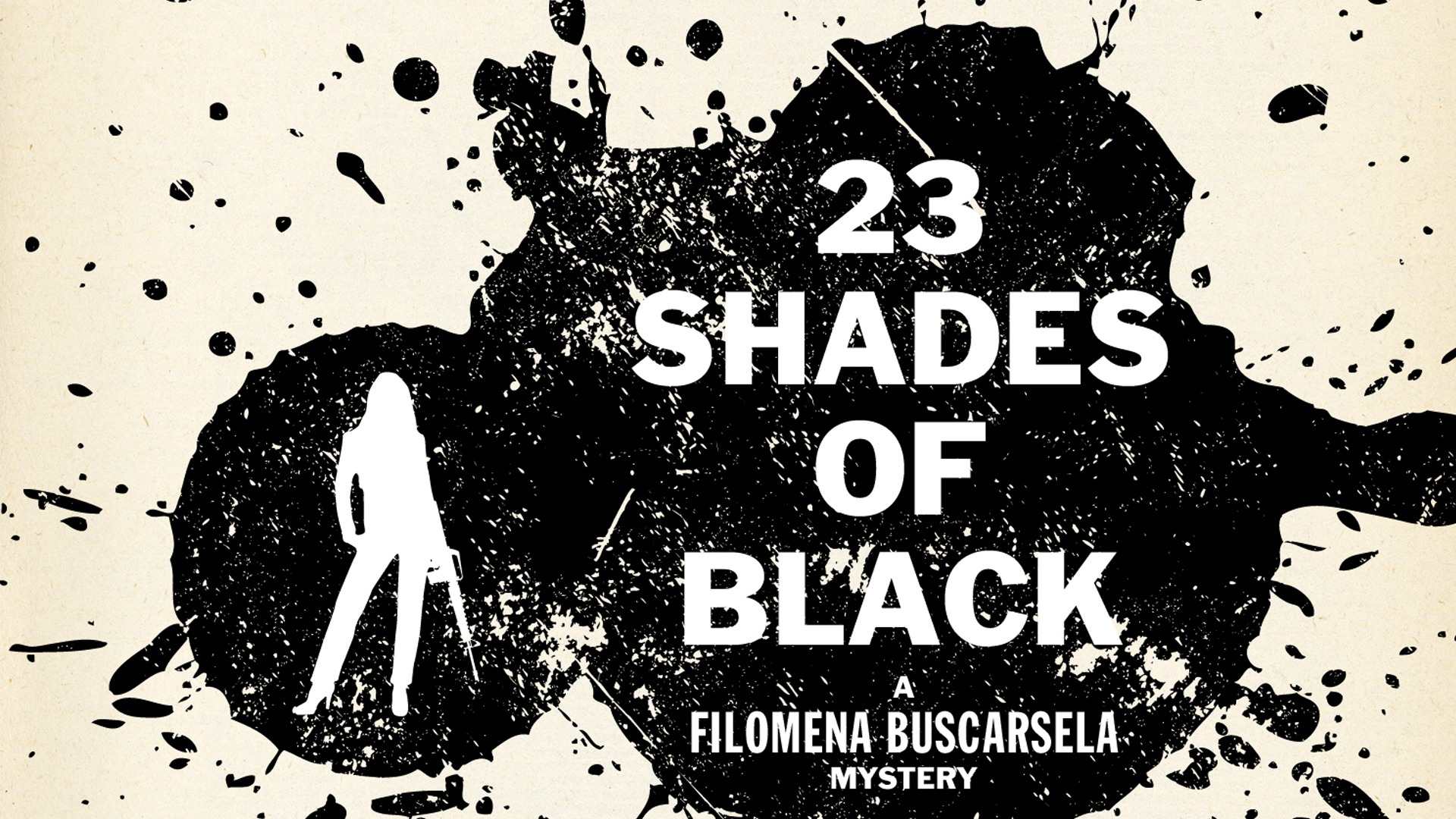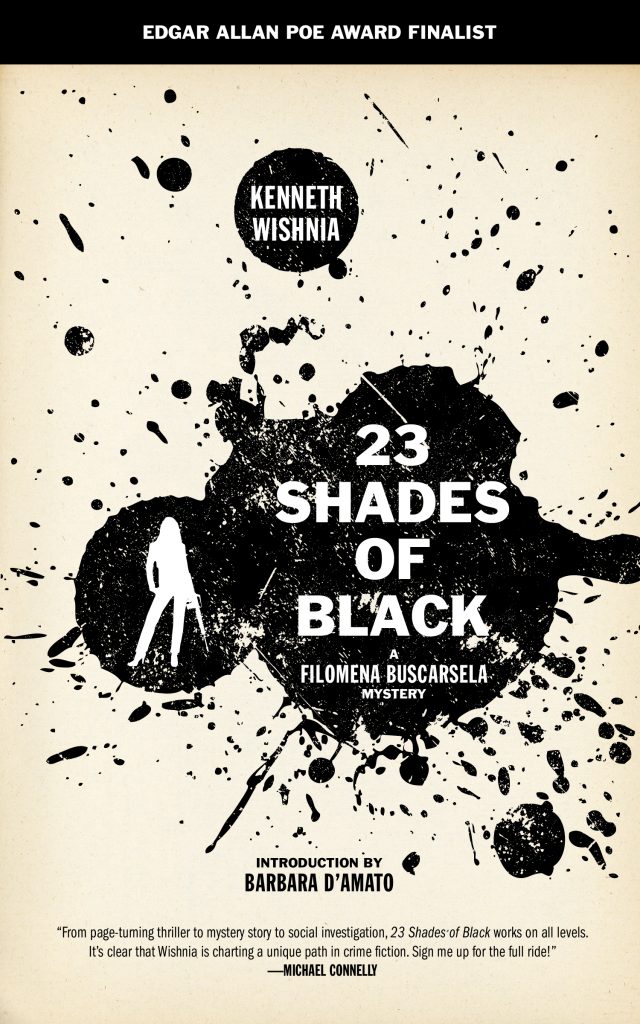by Bruce De Silva
Bruce De Silva.com
April 4, 2012
This review is either two months premature or fifteen years late, depending on how you do the math.
Kenneth Wishnia spent nine years trying to find a publisher for 23 Shades of Black before finally self-publishing it in 1997, setting the type himself, and shipping off a few copies to book reviewers. The result: a few rave notices, nominations for both the Edgar and Anthony Awards, and sparse sales.
Now the novel–the fifth in the author’s series featuring crime fighter Filomena Buscarsela–is scheduled to be released again, this time by PM Press, on June 1.
My wife Patricia and I first met Ken, a Brown University grad who teaches comparative literature at SUNY Stonybrook, two years ago at the Bouchercon crime fiction convention. He pressed a signed copy of the Imaginary Press edition of 23 Shades of Black into our hands. We never got around to reading it. Last week at another convention, Left Coast Crime, he gave me another signed copy, this one from his new publisher.
I’d brought several books with me for cross-country flight, but by the time I arrived in Sacramento, I’d read them all. So on the long journey back to New Jersey, I cracked Ken’s book and immediately saw why so many publishers had turned it down. Who wants to read a novel about a Hispanic female police officer who spends half of her time high on drugs and alcohol, the other half fending off fellow cops who want to play grab-ass, and all of it in a left-wing-politics-fueled assault on a conglomerate that is hell-bent on committing environmental and cultural genocide?
Me, that’s who.
For one thing, this guy can write. The prose is as tight as my favorite band, the humor bites like a Great White, and the mood is as angry and bitter as The New Black Panther Party on a bad day.
For another thing, the heroine is something truly fresh in the sometimes copy-cat crime genre: an Ecuadorian-born New York City flatfoot with a longing for her home country, a jaundiced view of her adopted one, and an unyielding passion not just for justice but for social justice.
Filomena is tough, vulnerable, insolent, compassionate, unsentimental, violent, sexy as all hell, and alternately proud and self-doubting. Although this first novel is set in Ronald Reagan’s 1980s America, she is a true hero for the culturally diverse, politically polarized, class-warfare America of 2012.
The Tea Party crowed will hate her, which should be all the endorsement you need.







